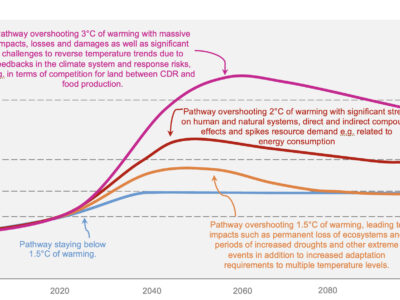By Mikaela Luttrell-Rowland and Hannah Yore

Last week, a diverse group of 30 frontline activists, practitioners, and academics from across the United States came together at the Earth Institute to discuss the reality of building collective action for peace and social change, and to identify synergies across their social movements and organizations. This workshop, which took place on May 21 and 22, was organized by the Women, Peace and Security Program at Columbia University. The WPS Program, led by Nobel Peace Laureate Leymah Gbowee, seeks to magnify the impact of everyday women peacebuilders and contribute to a greater understanding of why, how, and in what ways women have been able to successfully influence sustainable peace in their own communities.
This workshop was the first of its kind, and the first for the WPS program. Much of the current research and activism on women, peace and security focuses on contexts of armed conflict or threatened use of weapons of mass destruction. Columbia’s Women, Peace and Security Program, however, aimed to focus its inaugural workshop on peace struggles closer to home. The gathering engaged domestic grassroots and social change practitioners working on issues less commonly associated with overt armed conflict, but nevertheless eroding security, such as threats to racial justice, economic equity, sexual and reproductive rights, mass incarceration, immigrant rights, environmental sustainability, and other topics. Participants came from 10 states across the United States and represented a range of ideologies, strategies, and commitments to social justice.
The curriculum for the two days was based on participants’ feedback and recommendations, gathered through surveys and interviews leading up to the workshop. Margo Okazawa-Rey (professor at the School of Leadership Studies, Fielding Graduate University) and María Elena Torre (director of the Participatory Science Project at the City University of New York) co-facilitated the workshop. The discussions included reflections on global and local political landscapes, and current challenges affronting front-line activist work. Together the group named the ways such challenges inform their work, and they shared strategies on how to face these challenges collectively. A critical premise of the two-day workshop was developing relationships amongst the participants in order to build alliances and share resources.
In addition to building strategic partnerships, participants focused on the urgent need to understand “security” beyond only state-centered and militarized examples. Margo Okazawa-Rey and Leymah Gbowee offered reflective remarks and led the group in a conversation about their international work and activism, from Liberia to South Korea and beyond. Participants responded to this exchange by sharing their own visions of security and peace in their communities and beyond, generating the hashtags #genuinesecurity and #peoplebeyondborders and #radicalpeace. For example, Monalisa Smith of Mothers for Justice and Equality noted that genuine security means “building a world where it is not normal for children to be murdered, incarcerated or hungry.” Shikha Bhatnagar of the South Asian Network stated that to her, genuine security means “reclaiming our bodies, our communities, and our power.” Another group of participants shared that for them, “reproductive justice is security. Women should feel safe and secure over their healthcare decisions.” Guerline Jozef of the Haitian Human Bridge Alliance and the Black Alliance for Just Immigration noted that women of color have to be part of all security discussions, but also that the entire frame of security conversations has to change: “When you come to the table, shake it, and flip it, if you must.”
During the second day of the workshop, participants spent time discussing the role of documentation and making links between academic and frontline activism. Cheryl Wilkins, senior director of Education and Programs at the Center for Justice at Columbia University, and María Elena Torre led the group in a dialogue about participatory methods and action-oriented research. The workshop provided an important space for reimagining relationships between the academy and activist work on peace and security. Participants deepened their collective analyses and began articulating ways research might both ground their work and build the reach of their organizing.
In anonymous feedback surveys, participants said that this workshop offered an important space to come together and learn from one another. One participant remarked that “having a space to come together was a life-changing experience. I have connected with the most brilliant and inspiring advocates who have refueled my internal fire.”
The inaugural two-day social change workshop reaffirmed the WPS team’s commitment to and belief in women’s unique understandings of peace and contributions to challenging injustice. Similar workshops are being planned for the future by the WPS program, both within the United States and beyond.



